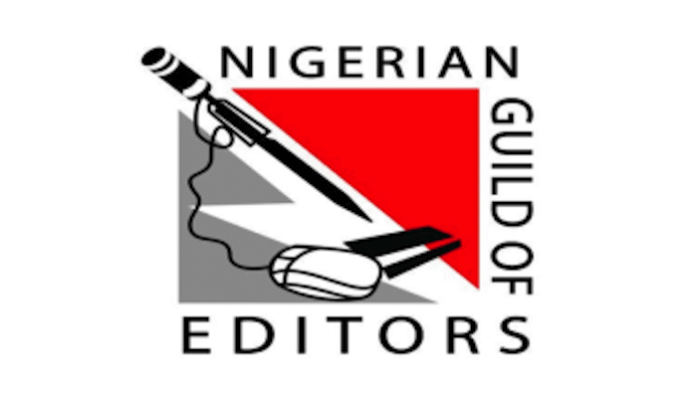The Nigerian Guild of Editors (NGE) has resolved to establish fact-check desks in newsrooms across the country as a proactive measure to combat the rising tide of fake news, misinformation, and disinformation, especially as the nation approaches the 2027 general elections.
This was contained in a statement jointly signed by the President of the Guild, Mr. Eze Anaba, and the General Secretary, Mr. Onuoha Ukeh, at the end of a one-day workshop held in Lagos on Friday. The event was organised by the European Union (EU) in collaboration with the Nigerian Guild of Editors.
The statement reads partly:
“The deliberate spread of false information, whether through disinformation, misinformation, or fabricated news, not only undermines public trust, but also threatens social cohesion, democratic governance, and national security.”
“It is our hope that through informed discussions and shared insights, we will strengthen our individual and institutional capacities to identify, counter, and prevent the spread of false narratives.”
“Editors have agreed to set up fact-check desks within their organisations to verify news hints with a view to publishing only accurate information.”
“The Guild will also establish disinformation counter-groups across its zonal structures, ahead of the 2027 general election, and media organisations are encouraged to train newsroom managers and line editors on fact-checking skills and collaborate to verify information,” the statement added.
The EU Ambassador to Nigeria and ECOWAS, Mr. Gautier Mignot, while addressing participants at the workshop, described misleading information as a danger to democracy and public trust, calling on media professionals to adopt more rigorous verification processes.
“The European Union is actively working to combat disinformation and promote media literacy, with fact-checking playing a crucial role in these efforts,” the statement quoted him as saying.
According to him, “Our choice of collaborating with the Nigerian Guild of Editors on this programme is part and parcel of this general effort. We recognise the critical role of editors as the last line in the gatekeeping process. The editor is ultimately responsible for what is pushed into the public space as content.”
Citing a July 2024 European Parliament report, Mignot stated that 85 percent of people globally worry about the impact of disinformation, while 38 percent of EU citizens now view it as a direct threat to democracy. “If we want to remain credible and reliable, we have to fact-check to ensure that the information we spread is accurate,” he warned.
The ambassador also referenced a 2020 report by the Centre for Democracy and Development (CDD), which highlighted how disinformation in Nigeria had worsened ethnic and religious tensions, particularly with the rapid spread of false content across text, audio, images, memes, and video formats.
He noted that while technology has helped accelerate the spread of fake news, it also offers opportunities for traditional media to reclaim public trust by reinforcing credibility through fact-checking and transparency. “Media must remain reliable… the research for the scoop must never override the research for the truth,” the statement added.
The workshop featured in-depth sessions on fact-checking tools and techniques, facilitated by Mr. Azu Ishiekwene, Senior Vice Chairman/Editor-in-Chief of Leadership Newspapers, and Dr. David Ajikobi, Executive Director of Africa Check.
Topics covered included:
Principles of Fact-Checking: Understanding the Role of Editors in Accuracy, Fairness, and Transparency,
Identifying Misinformation and Disinformation, and
Fact-Checking Tools and Complex Scenarios Analysis.
The training emphasised the critical need for editors to develop systems and tools that can identify and counter fake narratives, highlighting how unchecked misinformation could erode media credibility, distort public perception, and ultimately undermine democratic institutions.

